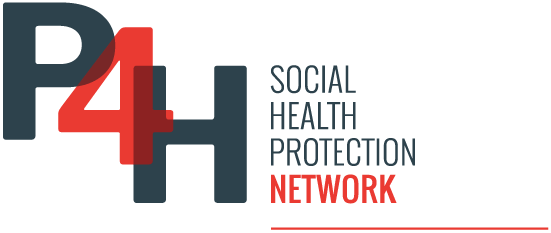The number of documents available on the P4H Network’s digital platform reflects the network’s scope of work. The majority of documents are primary source materials created by country nationals or resources produced by organizations working in social health protection (SHP) and/or health financing (HF).
Social norms and values impacting health expenditures in India
Household resource allocation in India is not just a pragmatic and calculative exercise, it also involves multi-layered tacit and explicit contestation, bargaining and negotiations that occur at the intersection of social norms, economic class, caste, gender, age, and...
Decree determining the conditions of medical control -AMU
The decree issued in application of the provisions of article 33 of law no. 060-2015/CNT of September 5, 2015 on the universal health insurance scheme in Burkina Faso, determines the terms and conditions of medical control and medical expertise.The medical check-up...
Decree setting out the conditions for administrative control of RAMU
The present decree, issued in application of the provisions of article 37 of al loi n°060-2015/CNT du 5 septembre 2015 portant régime d'assurance maladie universelle au Burkina Faso, sets the terms and conditions of administrative control.The administrative control...
Decree approving RAMU agreements
This decree approves standard models for national and individual agreements. The standard models of national and individual agreements governing relations between universal health insurance scheme management bodies and public or private health care providers, in...
Adoption of the decree defining the universal health care basket
Le présent décret est pris en application des dispositions de l'article 12 de la loi n°060-2015/CNT du 05 septembre 2015 portant régime d'assurance maladie universelle au Burkina Faso, définit le panier de soins du régime d'assurance maladie universelle.
Oman – Sustainable Finance Framework
Oman's Sustainable Finance Framework is designed to support the country's transition to a low-carbon, sustainable economy. It enables the issuance of green, social, and sustainability bonds and sukuk to finance projects aligned with Oman Vision 2040. The framework...
Effect of capping fees in healthcare on affordability and accessibility in Philippines
Philippines shifts healthcare payments, raising concerns about affordability & access due to delays, denials & reduced coverage. This commentary urges reevaluation and audit reform to prioritize public health goals.The Philippines switched its health insurance...
Citizen engagement in national health insurance in rural western Kenya
Kenyans know of health insurance but don't trust it. Low awareness of benefits and poor communication hurt enrollment. Study in the Health Policy and Planning Journal suggests better explanations and clearer performance reporting to build trust.Many Kenyans are aware...
TANZANIA: Health financing reforms on track for universal health coverage
Tanzania's health reforms using funding schemes show promise for achieving universal health coverage, aligning with goals of strategic health purchasing. This Ifakara Health Institute Study highlights need for stronger financial autonomy for some schemes.Tanzania's...
To meet the unmet: preparing for health equity challenges in WHO South-East Asia Region
Health inequity and unmet need are major challenges in achieving UHC and financial protection in the South-East Asia Region. This report documents progresses in addressing health inequities with a focus on multiple manifests of vulnerabilities and multiple components...
Fighting chronic malnutrition in Niger
To monitor nutrition policies and programs, Niger has carried out a series of annual surveys on malnutrition in children under five at national level (known as SMART surveys) since 2005. The SMART 2021 survey was used for this study. These analyses reveal malnutrition...
Quality of maternal and newborn care in Niger
In Niger, improving the supply, quality and demand for healthcare services is the second strategic focus of the 2017-2021 Health Development Plan. The purpose of this document is to inform users in general, and authorities in particular, in order to help them make...
Contraceptive prevalence and fertility in Niger
Niger's population tripled between 1988 and 2021, from 7.2 to 23.6 million. This strong demographic growth is the result of a high and stable fertility rate, with almost 7 children per woman during this period. This study aims to highlight recent levels and trends in...
Coverage and Equity: in maternal, newborn and child health interventions.
In Niger, mortality figures remain worrying despite the progress made over the past ten years. Intervention coverage levels remain unsatisfactory and unequal. This descriptive study aims to analyze the levels and trends of maternal, newborn and child health...
Multiple Indicator Demographic and Health Survey (EDSN-MICS IV) 2012
This report presents the main results of the fourth Multiple Indicator Demographic and Health Survey (EDSN-MICS IV), carried out by the National Institute of Statistics (INS) of the Ministry of Finance in collaboration with the technical services of the Ministry of...
